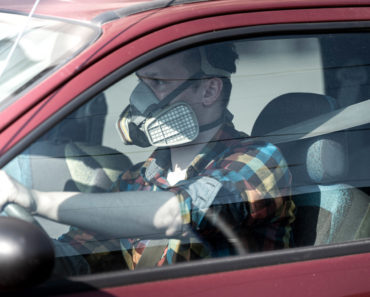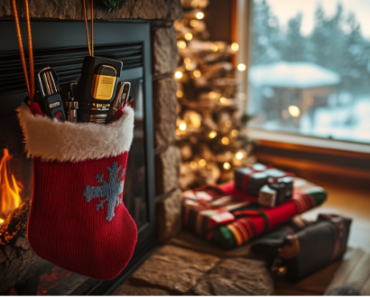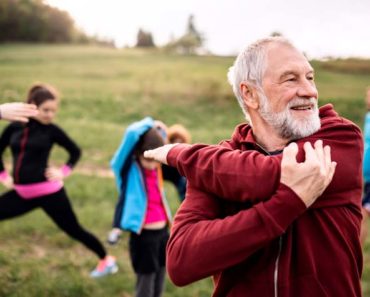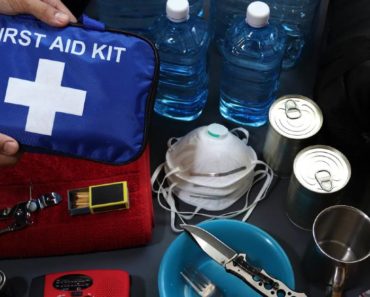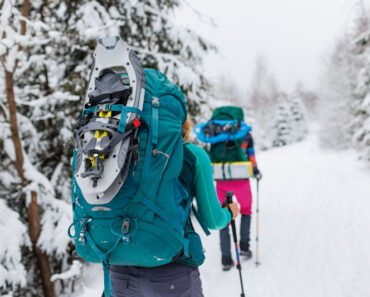Here in the prepping and survival community, we talk a lot about surviving disasters of all types. That means a lot of our discussion centers around major disasters, what we refer to as TEOTWAWKI events. Those are much more interesting to talk about than more common disasters; and in reality, if we prepare for those larger events, we’re going to be prepared for hurricanes, winter blizzards, and other more commonplace disasters.
But from what I see, and I’ve been at this a long time, there is little thought given to creating an “after plan.” I’m not talking about our plan to survive after the disaster is over. We do that. A lot of preppers are thinking in terms of homesteading, so that they’ll be able to make it through the aftermath of the disaster. Listening to them speak, they will be living off their homestead forever, not worried about what has happened to the rest of society. They’ll be fine on their own.
In reality, they won’t be fine on their own. While there is a lot we can do on our own, becoming as self-sufficient as possible, we can’t do it all. We need the massive infrastructure and supply chain we’ve created, as well as all the millions of specialists out there, who provide products and services we can’t provide for ourselves.
Can you produce your own blood pressure medicine? How about medicine to treat diabetes? Chances are pretty high you can’t. Oh, you might know of a few herbal remedies which are reported to help; but that’s not quite the same as knowing how to produce something that has succeeded in making it through the FDA’s approval process. That’s like a whole other world.
What about making gasoline? Do you have horses for transportation? Again, there are few of us who can meet those basic needs. While we may be able to do a lot for ourselves, there will always be things we need from others; at least, if we want to stay alive.
Back when I was young, a half-century ago, the survival stories that people wrote always ended with people working to restore society. That’s not so common in more modern TEOTWAWKI survival scenarios. Most authors today, like most preppers, act like once we’ve made it through the first year, everything will automatically be all right.
Really? I don’t think so.
Allow me to put it this way. Do you want to go through all the trouble of ensuring your family’s survival, without there being anyone available for your children to marry? Do you want to be the last generation? If we’re not thinking far beyond our immediate survival, that’s exactly what we’re planning for.
True recovery from a disaster means more than just feeding our families through the following years. It means providing for their other needs as well, including spouses for our children and medical help for them as well. It means schools so that our grandchildren learn more than just survival and police to deal with the malefactors that always seem to manage to survive. For that matter, it means a functioning government, at least at a local level, because if there isn’t one, then the warlords will rise up and take over.
Now, here’s the question for you: Do you want to leave the responsibility of all that to the kinds of people who have made such a mess of society today? If you do, then you’re saying that you’re perfectly happy with the direction our country is going, with everything that society and the government is doing wrong. You’ll be glad to see all of it come back, in all of its messed-up glory.
From what I see, there are plenty of us in the prepping community who are at least partially looking forward to such a disaster happening, so that we can get rid of the mess that we’re currently in. There are a lot of us who look at a TEOTWAWKI event as an opportunity to fix everything that is wrong, and that attitude goes back to those novels which were written a half-century ago.
Preparing for the “After”
The only reasonable answer to restoring society in the wake of a TEOTWAWKI event, is for those of us who are preppers to restore it. We are the only ones with the skills and knowledge to rebuild any sort of reasonable society. That’s mostly because we are the only ones who truly understand what is needed in order to survive. Others will focus on things like “diversity” and “Inclusivity,” even to the point of endangering humanity’s survival.
But even while we are the best able to restore a reasonable society, where people have a reasonable chance of survival; that doesn’t mean that we’re fully ready to do so. There are still a lot of skills and a lot of knowledge that is lacking in the prepping community. In other words, we might know how to rig up solar panels and a battery backup system to provide power for our homes, we have no idea how to make the solar panels or the batteries ourselves.
Most preppers keep themselves busy learning survival skills. That’s important. We all expect to need those skills someday, when everything goes wrong and we’re facing that major disaster. But, while those skills may help our families to survive, they won’t be much help in rebuilding society. They especially won’t be much help in rebuilding the technology that our society is founded upon.
Many of us have some of those skills, due to our professional lives. But that doesn’t mean that we’re ready to practice those skills in a post-disaster world, where everything won’t be nice, neat and in order. It’s one thing to work on systems or even system repairs; it’s another thing entirely building those systems from the ground up.
That’s not saying that all is lost for us if the disaster is bad enough. Rather, it’s more like saying that we’ll need some references, to go along with the knowledge that we have, so that we will be able to build those systems.
I’ve been in the position of starting a factory from nothing. Since a factory is a big system, it makes a good example. I had a lot of knowledge about how factories ran, even factories that made the kinds of products we were going to make, as well as knowing about the products themselves. Even so, I needed to use a lot of references to design and build that factory. Nobody expected me to do it all out of my head, even though that’s the way everyone talked about it.
When it comes to rebuilding the systems we need, in order to restore society, we will need references too, in addition to our skills and knowledge. We’re also likely to need some sorts of tools, specific to whatever part of society we are working on restoring. It only makes sense to either have those tools or know where we can get them.
In William Forstchen’s trilogy, which started with the book “One Second After,” there’s a lot of talk about restoring basic communications and limited electrical service, especially in the second book. They had an abundance of information available to them, especially from magazines that depicted the invention process during the “war of the currents” between Edison and Tesla. Because nobody in the town the story took place in had knowledge of how to produce electricity, or the technologies that support it (such as drawing wire), all their knowledge had to come from those magazines, using that information to direct their own experiments and eventually a functional power turbine.
How much quicker would that process go, in real life, if it was being directed by people who knew something about generating electricity… or even knowing basic electronics? Even if they didn’t know how to wind a generator or electric motor, knowing how motors and generators work (they’re really the same thing, just different uses), would allow a person with that knowledge to take an existing motor apart and figure out the process.
What’s Your Part?
Don’t think that you’ve got to be prepared to do it all yourself. That’s not what I’m trying to say. What I am saying is that each of us should be ready to be a useful part in rebuilding an after the disaster society. That will be a unique opportunity, as we make an attempt at eliminating the problems in society today, while saving those parts that might be useful. But it can only happen effectively, if we are ready for it.
Yes, I know; this is just one more thing to prepare, amidst all the other things you’re already preparing. But it’s important too. Maybe you can survive without this one; but can your kids? Can their kids? If we want our grandkids to have a good life, then we need to be ready to salvage the good from society, even while we set the bad aside.
Expect there to be others; other preppers who are willing to lend a hand in the rebuilding process. In fact, get to know as many of them as you can, before that time comes. Just like we talk to other local preppers, sharing information, sources and ideas; we can share ideas for the “after.” After all, those are the people we’ll be working with, trying to restore some sort of society when that after time comes.




